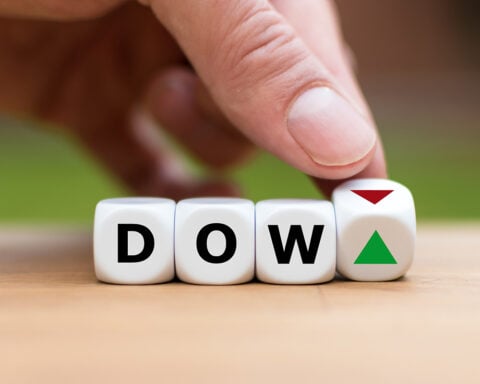Wall Street has enjoyed an impressive bull run over the last 18 months, with the Dow Jones Industrial Average, S&P 500, and Nasdaq Composite reaching record highs. Since the start of 2023, these indexes have climbed by 23%, 44%, and 71%, respectively. However, historical trends indicate that stock prices rarely move up in a straight line, suggesting that market corrections and bear markets are inevitable parts of the investment cycle.
Currently, two historically accurate metrics are signaling a potential significant downturn for the stock market. These metrics, which have a flawless track record over the past 150 years, suggest that a substantial decline could be imminent for the Dow Jones, S&P 500, and Nasdaq Composite. This forecast has led investors to reevaluate their portfolios, resulting in the sale of certain stocks in anticipation of a market drop.
Decline in U.S. M2 Money Supply
The first metric causing concern is the U.S. M2 money supply, which has significantly decreased for the first time since the Great Depression. Economists closely monitor M2, which includes cash, coins, demand deposits, money market accounts, savings accounts, and certificates of deposit under $100,000. For the past nine decades, the M2 money supply has generally increased, reflecting the capital needed to support transactions in a growing U.S. economy.
However, since peaking in April 2022, the M2 money supply has dropped by 3.49%, with a peak year-over-year decline of over 4.7% in late 2023. This marks the first time it has fallen by at least 2% from a peak since the Great Depression. Historically, such declines have been associated with economic downturns and high unemployment rates. Although there has been a slight year-over-year rebound in the M2 money supply, the overall decline indicates potential pressure on discretionary spending.
Elevated Shiller P/E Ratio for the S&P 500
The second concerning metric is the Shiller price-to-earnings (P/E) ratio for the S&P 500, also known as the cyclically adjusted price-to-earnings ratio or CAPE ratio. This ratio is calculated using average inflation-adjusted earnings over the past ten years. Recently, the S&P 500’s Shiller P/E ratio ended at 35.76, just below its recent peak of around 37, and more than double the historical average of 17.14.
Historical data shows that when the Shiller P/E ratio exceeds 30, it precedes significant market downturns. Over the past 153 years, whenever this ratio has surpassed this threshold, the S&P 500 and/or Dow Jones Industrial Average have eventually lost between 20% and 89% of their value. Although the Shiller P/E ratio is not a precise timing tool, extended valuations are generally unsustainable over the long term. With the current ratio near 36, a substantial market correction seems likely.
Stocks Sold Ahead of Predicted Market Drop
In response to these warning signals, some investors have proactively adjusted their portfolios by selling off specific stocks. Three notable stocks sold in anticipation of the market decline are Intuitive Surgical, Vertex Pharmaceuticals, and ExxonMobil.
- Intuitive Surgical: Despite its strong performance and leadership in the robotic-assisted surgical systems market, the stock was sold due to its high valuation. Shares were trading at approximately 60 times forward-year earnings, considered unsustainable.
- Vertex Pharmaceuticals: Known for its dominance in the cystic fibrosis treatment market, Vertex Pharmaceuticals was sold due to overvaluation. The stock was trading at 12 times current-year sales and 27 times forward-year earnings, fully valuing its growth prospects.
- ExxonMobil: The oil and gas giant was sold due to its cyclical nature and high price-to-book value. With commodity-based businesses prone to emotional swings, a potential decline in crude oil demand could negatively impact ExxonMobil’s valuation.
These strategic moves aim to mitigate potential losses and position for reentry into these stocks if their prices drop significantly. As the market braces for a potential downturn, careful portfolio management remains crucial for navigating uncertain times.







